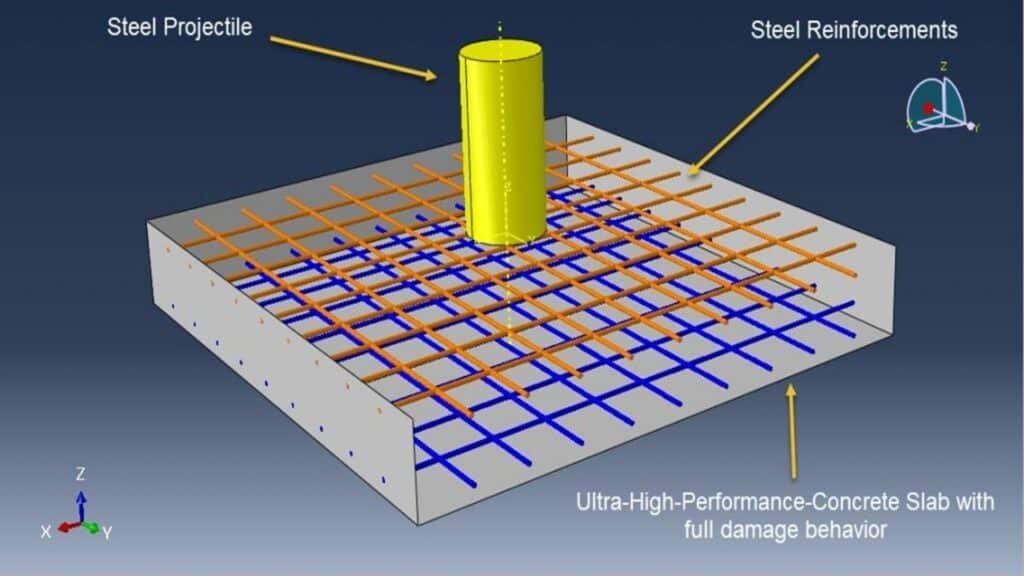
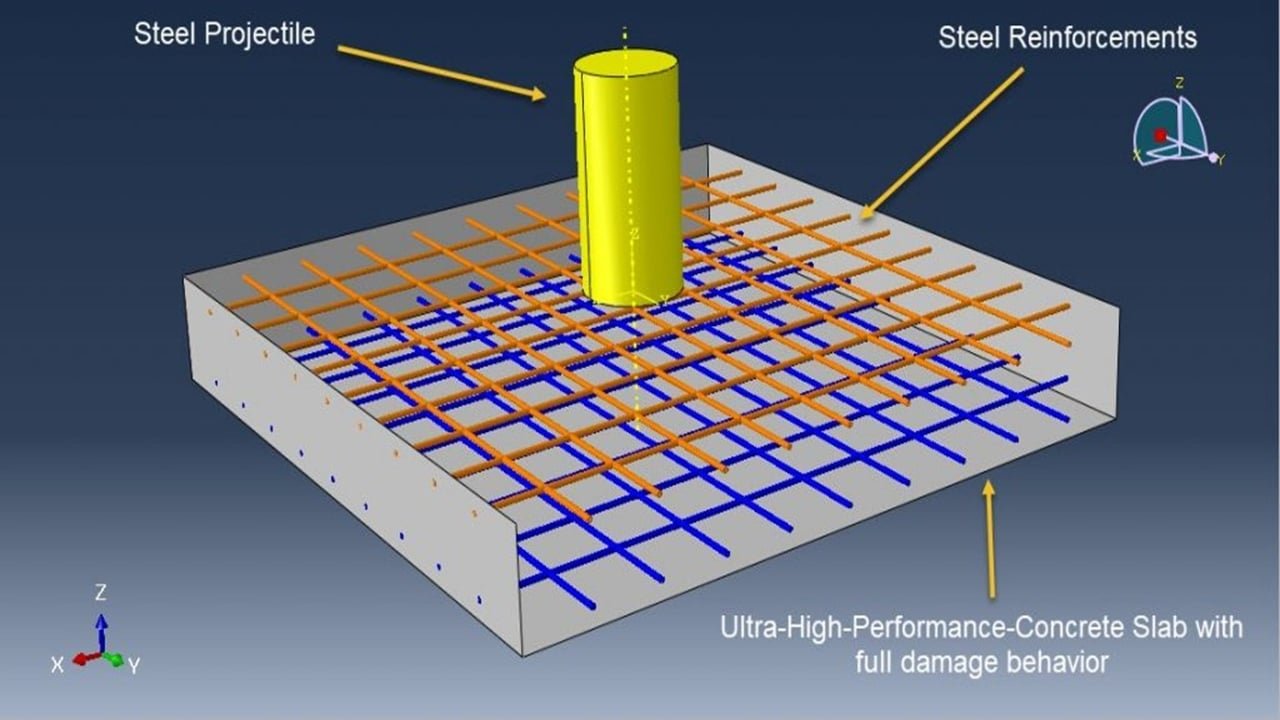
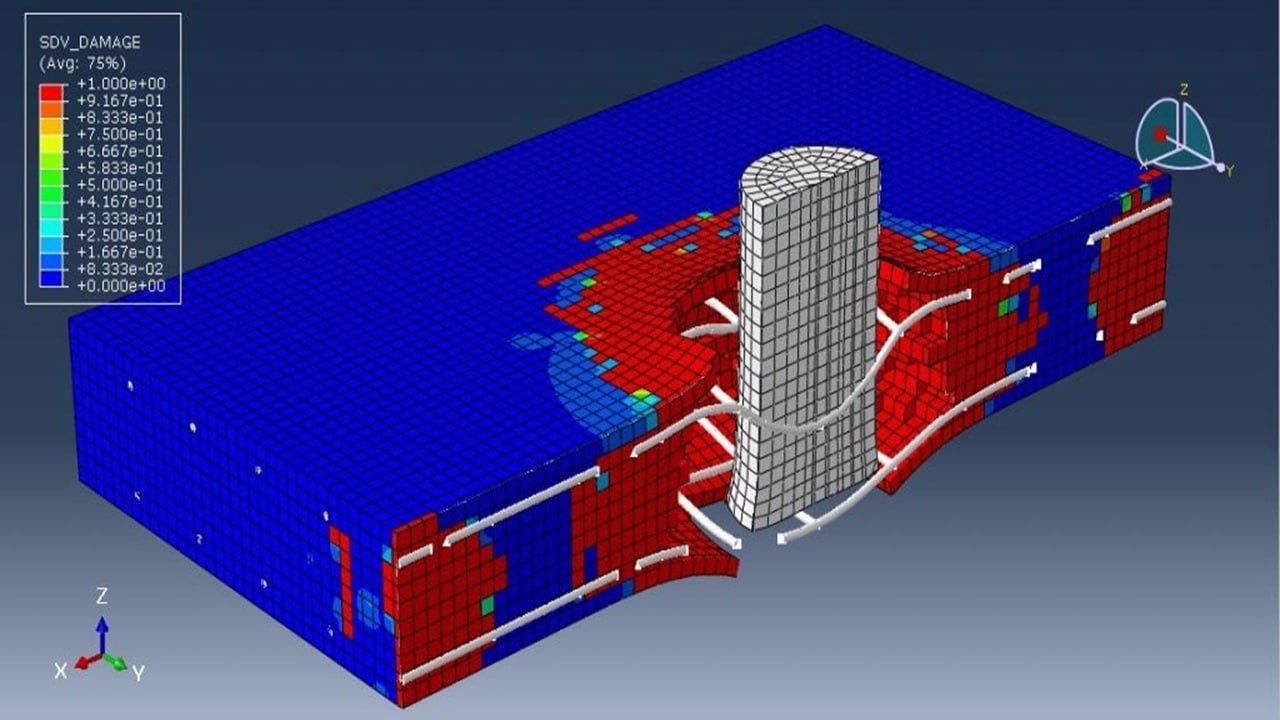
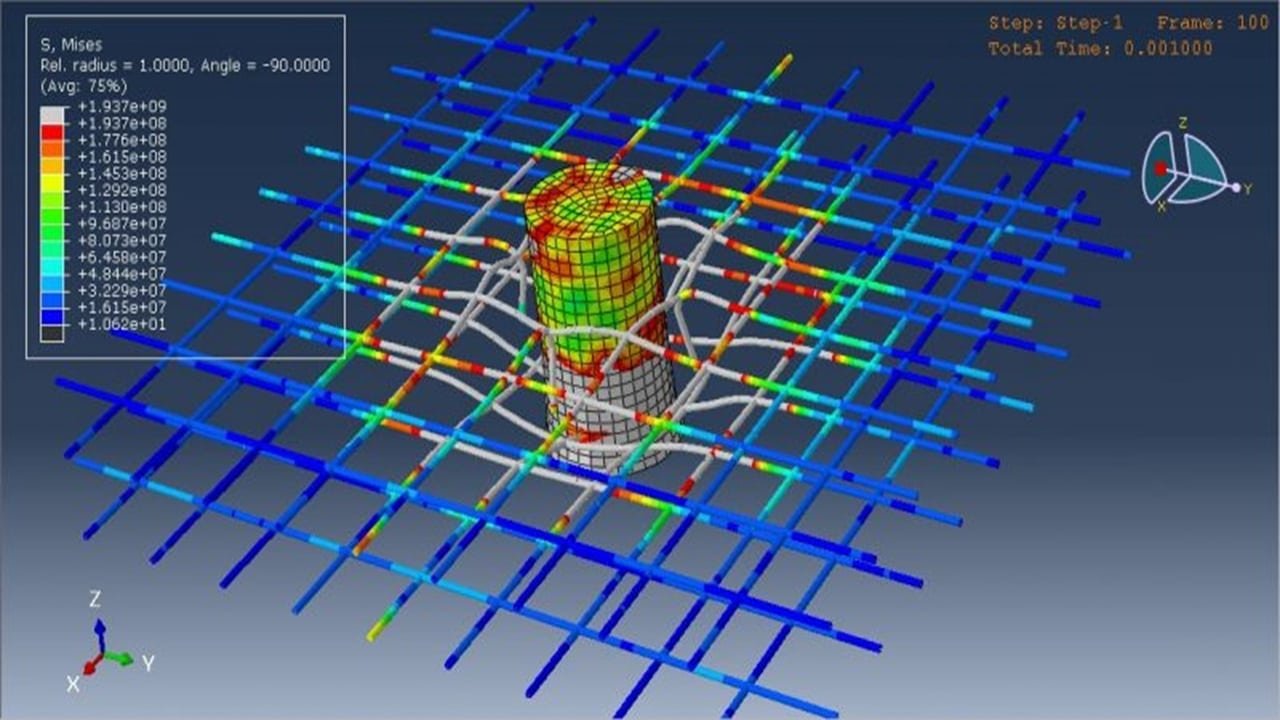
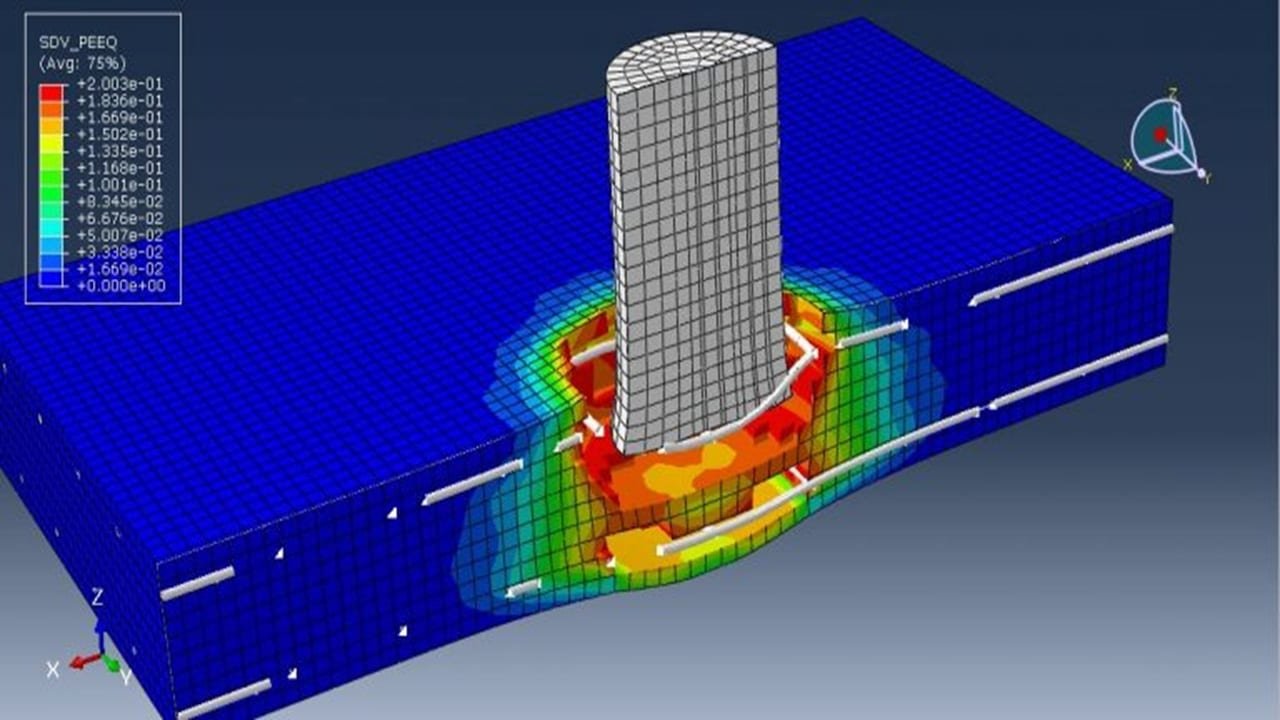
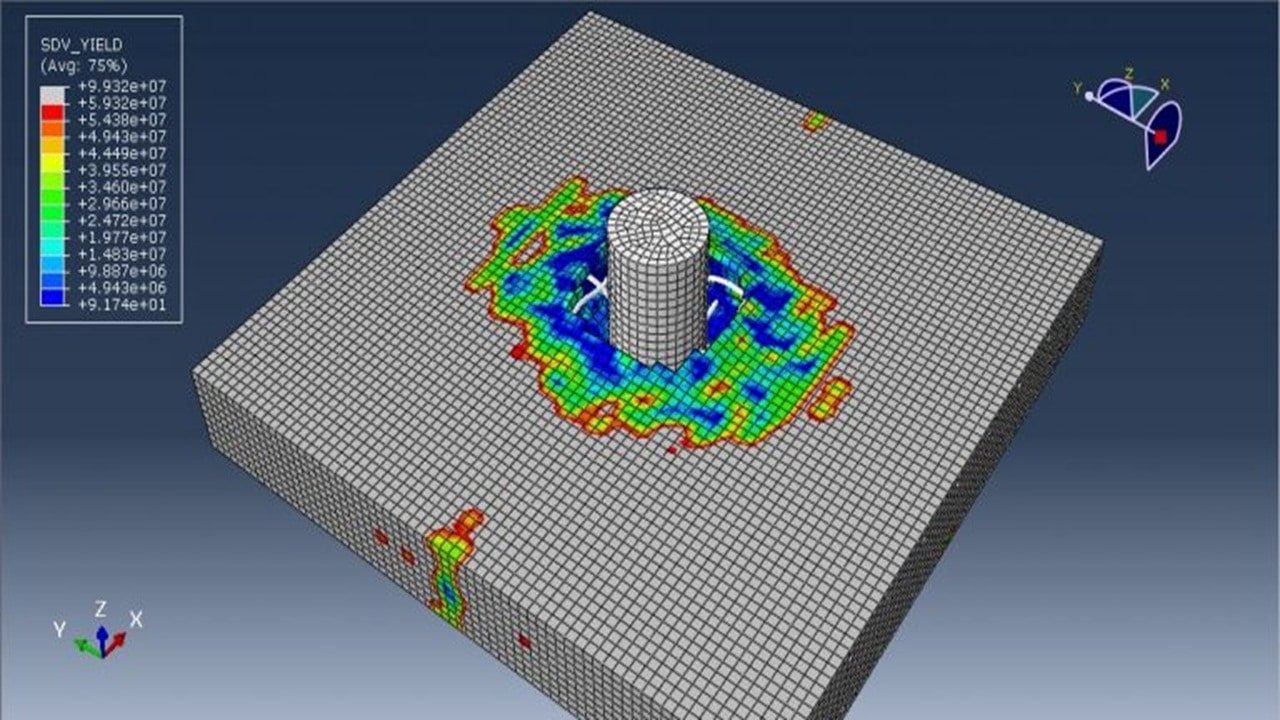
This tutorial guides users through how to simulate the impact of a steel projectile on reinforced ultra-high-performance concrete (UHPC) to study how the material gets damaged. In the model, the UHPC is represented using 3D solid elements, while the steel reinforcement bars are modeled as 3D wire elements. The projectile itself is also treated as a 3D solid.
To capture how the UHPC breaks or fails, the simulation uses the Concrete Damaged Plasticity Model (CDPM), which focuses on key failure behaviors like cracking under tension and crushing under compression. The model is set up using stress-strain data from lab tests on UHPC under both tension and compression. However, in high-speed impacts, CDPM has limitations because it doesn’t fully account for how the material responds to very fast strain rates. For these more extreme scenarios, a more advanced material model—typically implemented using custom user subroutines like VUMAT or specific input files—is recommended to better reflect the behavior of UHPC under dynamic loading.
The steel reinforcement and the projectile are assigned an elastic-plastic material model, which includes damage criteria for ductile and shear failure to reflect how they degrade under impact. The simulation runs using a dynamic explicit step to accurately capture the quick, transient impact event. To handle how different parts interact during impact, general contact settings are used, with friction and cohesion properties defined. The steel bars are embedded in the UHPC using a constraint that ensures they stay properly bonded to the concrete during the simulation.
To replicate real-world behavior accurately, fine meshing is used—especially in areas expected to experience high stress—to capture localized damage in detail. Once the simulation is complete, you can analyze a range of results, including stress and strain distributions, damage zones, failure patterns, and how far the projectile penetrated. These outputs provide valuable insights into how UHPC performs under impact loading.

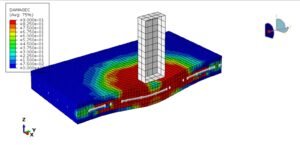
Abaqus
€97,00 €54,00
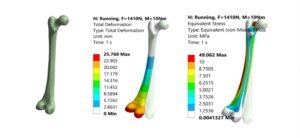
Engineering files
€60,00 €50,00
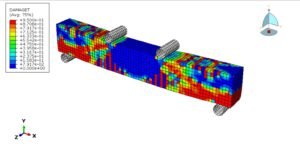
Abaqus
€146,00 €89,00
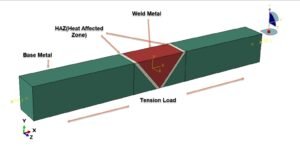
Abaqus
€85,00 €47,00
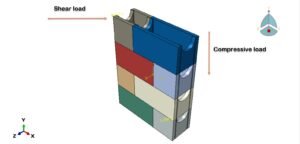
Abaqus
€78,00 €39,00
See more

Want to receive push notifications for all major on-site activities?